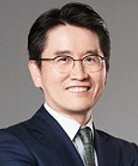Probe on Samsung and Blue House must lead to NPS reforms
Probe on Samsung and Blue House must lead to NPS reforms
Posted November. 25, 2016 07:17,
Updated November. 25, 2016 07:24
National Pension System (NPS) Chairman Moon Hyung-pyo, former welfare minister of South Korea, went under the prosecution’s investigation on Wednesday over his alleged involvement in the merger between Samsung C&T and Cheil Industries last year. The summoning is based on the suspicion that Samsung sponsored Choi Soon-sil, President Park Geun-hye’s long-time confidante, and that the presidential office manipulated the NPS, the second largest shareholder of Samsung C&T, to clinch the merger in favor of Samsung. The NPS chairman, however, denied such allegations, saying, “In the process of merger, I never spoke to Samsung officials. There was no directive from the presidential office, nor did I order the NPS to vote for the merger.”
When the merger plan faced strong opposition from the U.S. hedge fund Elliott Associates in May last year, the NPS voted for the merger on July 10 solely based on a review from an internal committee without consulting experts on an independent panel. So far, the prosecution has found out that Samsung Electronics Vice Chairman Lee Jae-yong had a one-on-one meeting with President Park on July 25, and that Samsung gave 2.96 million dollars to Core Sports, a paper company that Choi Soon-sil established in Germany between September and October.
The prosecution holds the view that the sponsorship that Samsung provided for Choi Soon-sil in addition to financing the Mir and K-Sports foundations constitutes a compensation for business or bribery made in expectation of it, unlike the case of other conglomerates that financed the twin foundations. Among the suspicions surrounding Samsung, the merger ratio was a decision made according to the standards stipulated in the Capital Market Act. It is also true that part of the rationale for the merger was to reflect the opinions of the individual shareholders who refused to sacrifice national interests for a foreign hedge fund. However, the prosecution is focusing their investigation on the companies that offered money to Choi Soon-sil’s paper company for a bribery case in addition to the funds provided for the Mir and K-Sports foundations.
Even if the allegations over the merger are dispelled, public distrust will invariably grow that taxpayers’ pension money is being swayed by political powers if the pension agency's governance system remains opaque as is. Indeed, the scandal at hand is also a byproduct of the proxy war between National Pension Service Chairman Choi Kwang and NPS chief investment officer Hong Wang-seon, who went to the same high schools with former presidential chief of staff Heo Tae-yeol and former deputy prime minister for economic affairs Choi Gyeong-hwan. If the national pension is taken hostage by a privileged few, it will spell a disaster for our fast-aging society. Regardless of the conclusion of the current investigation, this should serve as a chance to sever the connection between chaebols and political power while overhauling the operating system of the national pension.







